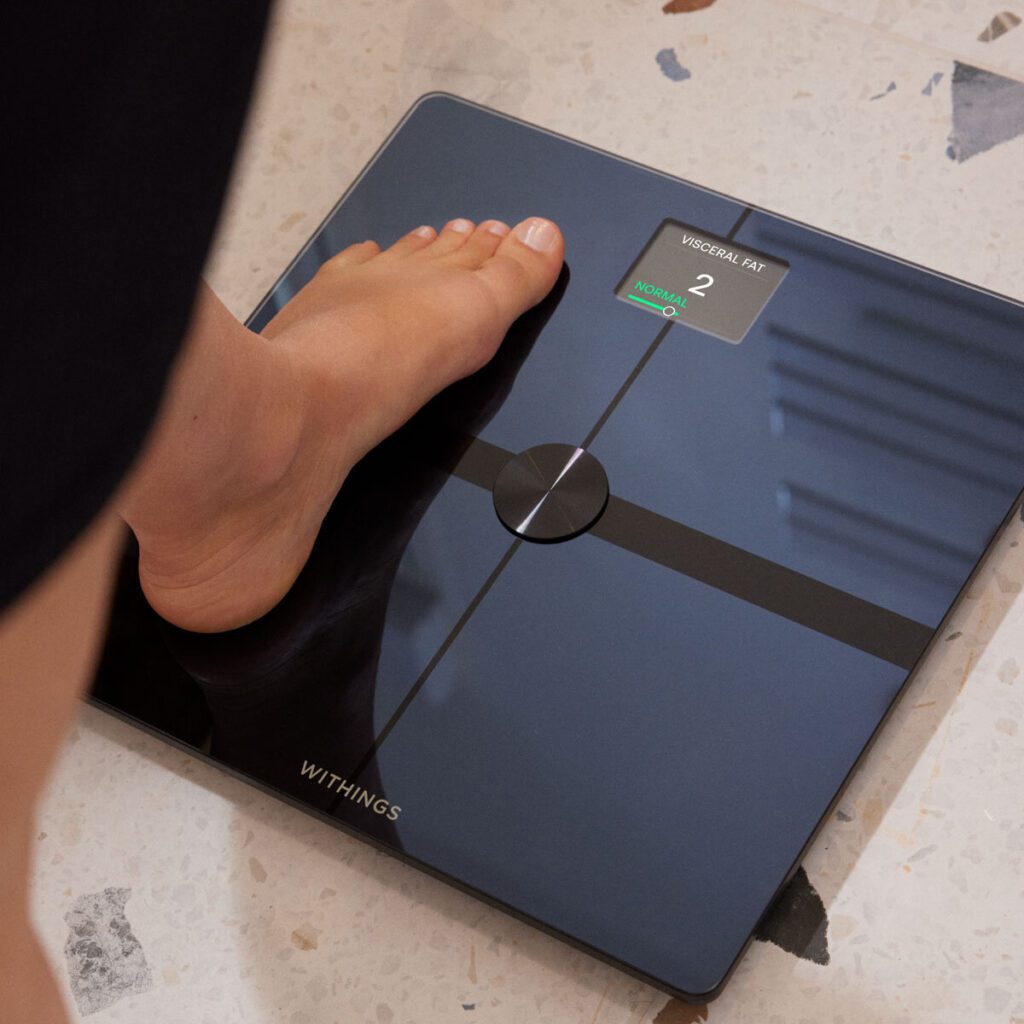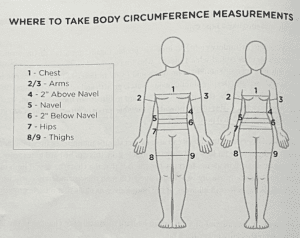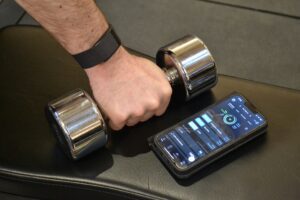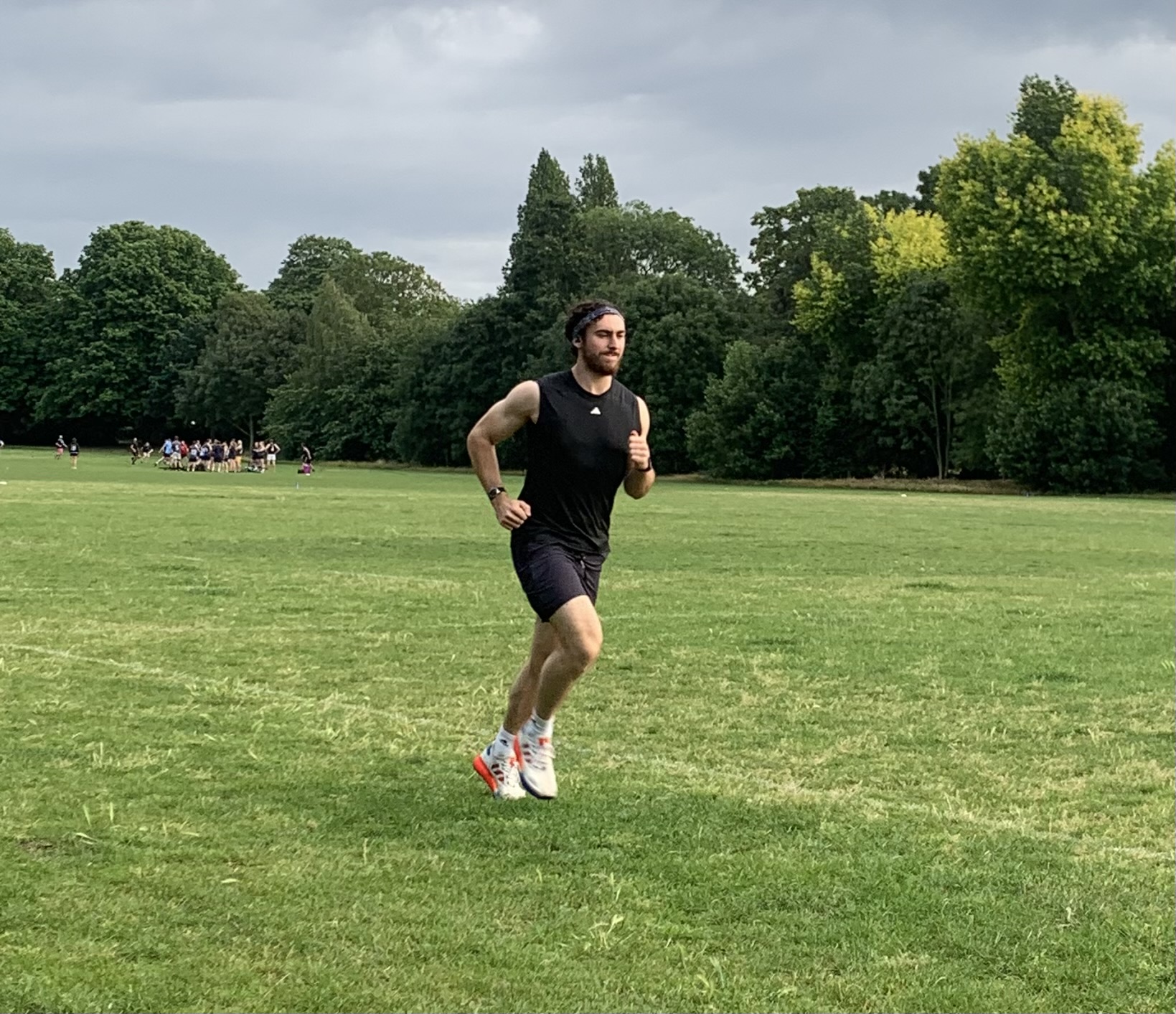Tools for Tracking Body Weight
Similarly to food weighing scales, I’d recommend buying a digital weighing scale to track body weight. All you need to do is google “digital body weight scale” and you’ll see many reasonable options appear. Whilst digital food weighing scales don’t tend to vary that much, you’ll see that prices vary a lot more when shopping for digital body weight scales. Again, if your goal is simply to monitor your body weight on a regular basis, you can get a good body weight scale for under £30.
If you are looking for something that does a bit more, you can start researching different smart scales. Withings is the market leader when it comes to smart body scales, and they have been manufacturing them for over a decade, producing their first smart scale in 2009. If you are someone who doesn’t want to manually track weigh ins, you can connect your Withings app (Health Mate) with the smart scale device, meaning it will automatically upload all your personal data to the app. Withings body comp smart scale for example, gives you much more in-depth analysis of your health – measuring weight, fat mass, muscle mass, visceral fat, heart rate, pulse wave velocity, vascular age, nerve health, BMI, water percentage, bone mass etc (3). You can also use the Health Mate app to set goals and track your progress over time. Ultimately, it comes down to what will work best for achieving your goals, so if paying a premium for a device that automatically records your data (via the app) helps you sustain weight loss and achieve your goals then go for it!
How to Effectively Track Body Weight
When using a weighing scale to track progress over time, it’s important that you remain consistent with your weigh in times and eliminate as many variables as possible. I recommend doing your weigh-ins as soon as you get up in the morning, after you have gone to the bathroom (if you don’t need a morning wee/poo I’m worried about you). To eliminate any variables, weigh yourself completely naked (and take off any devices or jewellery) and don’t eat or drink anything (including coffee or water) before you’ve done your daily weigh-in.
Weight Fluctuations
“It’s totally normal for your body to fluctuate 1-2% on a daily basis due to shifts in water. This is caused by day-to-day fluctuations in food intake, sodium intake, alcohol, and stress hormones, or from hormonal shifts during certain phases of a menstrual cycle (among other things)” (1., p.18). For this reason, it’s not advisable to stress or obsess over daily weigh ins, but to seek a more reliable average.
Weekly Averages
A more accurate method for monitoring weight loss or weight gain is by analysing weekly averages, as opposed to daily weigh-in results. 7 day averages will account for these random fluctuations and will give you more accurate results that predict weight loss (or change depending on your goals) over time. Personally, I either track these averages in my iPhone notes or in my journal. Once you have a 7 day average weight, “the goal is to compare your average weight from one week to the next” (1., p.18). It would be advisable not to start making changes to your food intake until you’re confident clear trends are emerging. Give yourself 2-4 weeks of weekly averages to increase reliability, before making 10-20% changes in your calorie intake, and then repeat the process again.
References
1. Helms. E (2019). The Muscle & Strength Pyramid: Nutrition.
2. Independent. (2023). 9 best bathroom scales for a smarter way to track weight and fitness. Retrieved from https://www.independent.co.uk/extras/indybest/house-garden/bathroom/best-bathroom-scale-b1822303.html









One Response